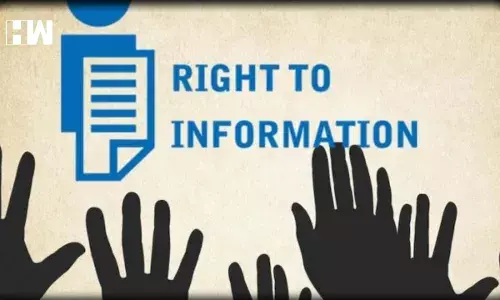The Annual report of the year 2021-22 of the Central Information Commission (CTC) shows 25,367 applications (47.38%) were rejected under Section 8 (1) of the Right to Information (RTI) Act, which indicates that exemptions from disclosure of information in its 10 sub-sections.
Section 8(1) of the RTI Act, which protects personal information and forbids disclosure that may cause unwarranted invasion of the individual’s privacy, is the most frequently used of permissible exemptions during the pandemic year. Central-level public authorities invoked this clause to reject 34.44% of the RTI applications in 2020-21 – a marginal increase over the 2019-20 figure of 34.01%.
However, Venkatesh Nayak, transparency advocator, told money life, that in his analysis of rejections listed in the CIC’s annual report, states, “Most ministries reported a major decline in the use of Section 8(1)(j) during the pandemic year. It was to the tune of 50% in the case of the prime public authority, Supreme Court of India (from 142 cases in 2019-20 to 72 cases in 2020-21).
Shailesh Gandhi, former central information commissioner (CIC) and RTI activist, had actively campaigned against the fecund use of Section 8 (1) under the array of protecting private information from being disseminated, says it is due to the misinterpretation of this clause, which continues without a halt and this lesser percentage is serious enough to threaten the power of this transparency law.
While speaking with money life, the RTI activist fears that the RTI Act will lose its teeth as public information officers (PIOs), appellate authorities (AAs) and information commissioners (ICs) consistently deny personal information to applicants because they perceive that it does not satisfy the larger public interest criteria.
Mr. Nayak also provided some interesting figures for the same, he told money life that according to him “The ministry of finance, which accounts for the most frequent use of this exemption year after year, also reported a drastic reduction in usage – from 7,528 cases in 2019-20 to 5,210 cases in 2020-21. Delhi Police also reported a major reduction in the employment of this exemption – from 641 cases in 2019-20 to only 470 cases in 2020-21. The use of this exemption halved in the ministry of petroleum and natural gas – from 415 cases in 2019-20 to 208 cases during the pandemic year.”
Those public authorities under various ministries which reported an increase in rejection cases are: ministry of external affairs which reported a five-fold increase in the use of Section 8(1)(j) during the pandemic year. It rose to 681 cases from 107 in 2019-20. Similarly, the ministry of steel had invoked this exemption in two cases only in 2019-20; but, in the pandemic year it was invoked in 199 cases.
The use of this exemption went up to 576 cases in 2020-21 in the ministry of railways, whereas it was used only in 20 cases during the previous year. The ministry of consumer affairs and public distribution also reported use of this exemption in 142 cases during the pandemic year as compared to only 18 cases in 2019-20. The ministry of health and family welfare used this exemption in 184 cases during the pandemic year, whereas it was used in only 107 cases in 2019-20.
Section 8(1) also protects information pertaining to deliberations of the council of ministers and secretaries while the process is underway.
Shaislesh Gandhi also blames certain court judgement too beginning from the Girish Ramchandra Deshpande vs Central Information Commissioner & others (2012) case, which have also given orders of exempting personal information from being provided.
“Such judgments demean the spirit of the Section 8 1(j) exemption clause. In this clause, there is also a proviso, which says that information that cannot be denied to an elected representative, cannot be denied to the common man either. However, this vital proviso is totally ignored, thus diluting the transparency, slowly and steadily,” the former CIC said while speaking to money life
As an independent media platform, we do not take advertisements from governments and corporate houses. It is you, our readers, who have supported us on our journey to do honest and unbiased journalism. Please contribute, so that we can continue to do the same in future.

